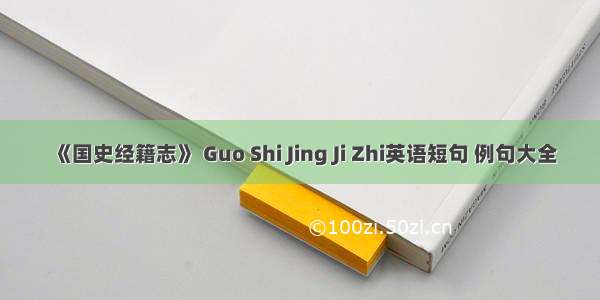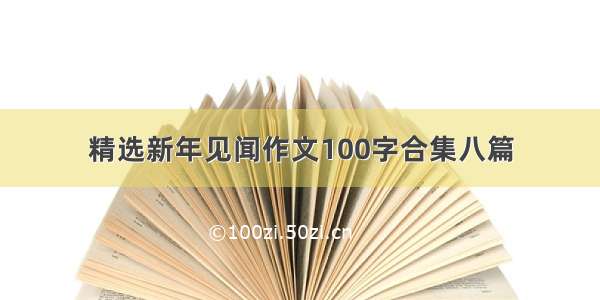
《史记·货殖列传》,Shi Ji:Biographies of Merchants
1)Shi Ji:Biographies of Merchants《史记·货殖列传》
1.Sima Qian s Exposition about the Wealth of the Plebeians──Notes Made While Reading Shi Ji: Biographies of Merchants;太史公论庶人之富——读《史记·货殖列传》札记
英文短句/例句
1.A Study about the Economic Zones in Biographies of Extremely Wealthy Businessmen in Historical Records关于《史记·货殖列传》中的经济区划问题——读《货殖列传》札记
2.Survey of "Historical Records. Huo Zhi Biography" Studies in the Past Ten Years;近十年来《史记·货殖列传》研究综述
3.Sima Qian s Exposition about the Wealth of the Plebeians──Notes Made While Reading Shi Ji: Biographies of Merchants;太史公论庶人之富——读《史记·货殖列传》札记
4.And yet,there are many recordings about Qin rulers espeially Qin shihuang respected big merchant.可《史记·货殖列传》中却记载有很多秦统治者重视大商人的史实。
5.The words “Quan Li” in Records of the Historian: Collected Biographies of the Commercial and Industrial Management is the synonym of “Yan Tie” (salt iron) in the Han Dynasty.札记三 :《史记·货殖列传》中“权利”一词在汉朝是盐铁的同义语。
6.Labor Division and the Development of Commodity Economy Revealed in Records of the Historian: Collected Biographies of the Commercial and Industrial Management《史记·货殖列传》所展示的分工与商品经济发展析论
7.Wealth and Morality--On the Ethics Value of "The Biography of Huo Zhi"in "The Records of the Historian;礼生于有而废于无——论《史记·货殖列传》之伦理学价值
8.Viewing Commodity Economy and Its Feature in the Momentous Period of Qin Dynasty and Han Dynasty from Records of the Historian-Breeding Biographies;从《史记·货殖列传》看秦汉之际的商品经济及其特色
9.Social Economy Commentary Section of the Historical Records《史记 货殖列传》
10.From Sima-qian To Liang-qichao;从司马迁到梁启超——兼析《<史记·货殖列传>今义》的经济思想
11.Dawan Commentary Section of the Historical Records《史记 大宛列传》
12.A Probe into Shi Ma-qian s Economic Thought from the "Biography of Engaging in Trade;从《货殖列传》看司马迁的经济思想
13.See the productive and managerial ideas of Sima-qian fromHuozhi collected biographies;从《货殖列传》看司马迁的生产经营思想
14.From the Biography of Huaiyin Feudal to See the Trick of Writing History of Shiji;从《淮阴侯列传》等看《史记》的写史手法
15.Detailed Study on "Grand Astrologer Said" in Historical Records·Biographies of Qu Yuan and Jia Yi《史记·屈原贾生列传》“太史公曰”发微
16.On Social and Economic Law in Biography about Currencies and Capital;从《货殖列传》看司马迁对社会经济规律的认识
17.A Probe into Sima Qian s Free Economic Ideology Throughhis Two Works PING HUAI SHU and HUO ZHI LIE ZHUAN;从《平准书》和《货殖列传》看司马迁的自由经济思想
18.Sima Qian"s Contribution to Accounting Culture Shown in Trading Biographies从《货殖列传》看司马迁对会计文化建设的贡献
相关短句/例句
Huo Zhi Biography货殖列传
1.Survey of "Historical Records.Huo Zhi Biography" Studies in the Past Ten Years;近十年来《史记·货殖列传》研究综述
3)biographies in Shiji(Historian"s Records)《史记》人物列传
4)"Shiji·the Biography of Quyuan《史记·屈原列传》
1.May Quyuan s patriotism and dedication be remembered in the annals of history ——A tentative probe into the mourning for his dedication in"Shiji·the Biography of Quyuan;爱国情报国志永垂史册——《史记·屈原列传》“悲其志”探赜
5)Dawan Commentary Section of the Historical Records《史记·大宛列传》
6)biographical history传记史学
1.The basic point of Sima Qian s view ofbiographical history was historically integrating events with personalities and literature with history so as to well deal with the relationship between literature and history.司马迁传记史学观念的基本点是将事与人、文与史在历史观念的基础上有机地统一起来,较好地处理了历史与文学的关系,表现了司马迁发达的史传真实观念;而普鲁塔克的《名人传》则徘徊于人与事、历史与文学之间,表现出将事与人、历史与文学相对立的趋向。
延伸阅读
《史记·货殖列传》中国西汉司马迁所著《史记》中为春秋末到西汉时的著名"富商大贾"所写传记的篇名。货殖是指以获取赢利为目的,从事于农、林、牧、虞(山泽)、工、商、高利贷等的生产或经营的活动。司马迁在《货殖列传》中为之立传的有:范蠡、计然(对计然是人名还是范蠡著作的篇名,有不同的看法)、子贡、白圭、猗顿、郭纵、乌氏倮、巴寡妇清、蜀卓氏、程郑、婉孔氏、曹邴氏、刀、师史、宣曲任氏、桥姚、无盐氏等。司马迁说他之所以写《货殖列传》,是由于这些人都是"布衣匹夫之人",他们的经营活动,"不害于政,不妨百姓",是靠"取与以时"而致富的。他们的经验可供后来的"智者"采纳借鉴(《史记·太史公自序》)。《货殖列传》不仅记载了这些富商大贾的事迹,而且紧密结合春秋末期到西汉的时代背景,描述了产生这些富商大贾的社会客观条件。因此,这一时期各地的自然条件、物产、都会、人口、农业、工商业等政治、经济情况和风俗习惯都得到具体而生动的记录。所以,《货殖列传》也包含了相当丰富的经济史、经济地理和民俗等方面的资料。《货殖列传》记载了这些富商大贾的身世、从事的行业、发家致富的经过、财产的数量、经营的规模、活动的范围、从业人员的数目以及和主人的关系、这些富商大贾的社会地位等。这些珍贵的资料,提供了当时社会经济发展,特别是商品货币经济发展的情况。《货殖列传》记载了这些富商大贾的特点,包括经营思想、个人的能力、作风等,从而说明了他们之所以能够致富的主观条件。如司马迁记载了据说是春秋末期与范蠡同时的计然的经济思想。计然提出粮价太低"病农",太高"病末",主张粮价应在一个合理的幅度中变动,以使"农末俱利"。在商业经营上,他主张"务完物,无息币"。他还认为物价变动是有规律的,"贵上极则反贱,贱下极则反贵",所以主张在经营时应该"贵出如粪土,贱取如珠玉"。司马迁还说范蠡运用"计然之策"经营商业很有成效,"十九年之中三致千金"。《货殖列传》中还记载了战国时期的大商人白圭在商业经营上"乐观时变,故人弃我取,人取我与","与用事僮仆同苦乐,趋时若猛兽挚鸟之发"的经营方法和作风。这些记载,保存了相当难得的古代工商业者的经济思想,特别是经营思想的宝贵资料。司马迁在为这些富商大贾作传时,还对工商业的发展,以及如何看待求富,如何看待经济发展,如何看待这些富商大贾,封建国家对社会经济发展所应采取的态度和政策原则等,都提出了他的看法,作了不少评论。所以,《货殖列传》又成为研究司马迁经济思想的重要资料。
















